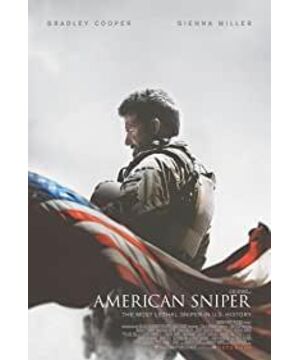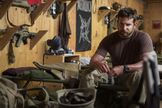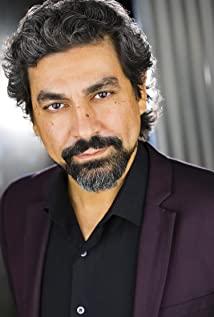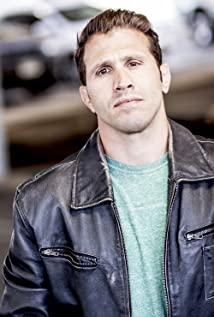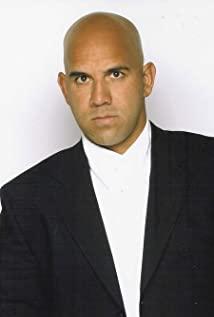In Shawshank's redemption, there is a long word institutionalization. It is said that when Brook, a librarian who had been imprisoned for most of his life, was released from prison, he was lost in an out wall that was difficult to adapt and committed suicide.
When Chris walked on the road of war, whether he became a legend or not, he walked one tour after another and was institutionalized by the war.
"There are three kinds of people in this world, sheep, hungry wolves and shepherd dogs. Some people naively think that there is no devil in the world, and when hatred comes to their doorsteps, they are powerless to protect themselves. These people are sheep, opposing existences. They are predators who use violence. These people believe in the weak and the strong. They are like hungry wolves. They prey on the weak. For the first time, they thought that there are some people who are naturally kind but gifted with hunting talents. They guard the sheep. This small part of them is born with Face the threat of the jackal, that is, the shepherd dog. My family does not accept sheep. If anyone wants to be a hungry wolf, I will never allow it. We protect our family."
There are not many twists and hints in the film. Chris's brand is marked by his father. Has long been firmly imprinted.
Become a hero with a fledgling enthusiasm.
Chris's adaptation process exposes the cruel face of any war and has nothing to do with justice.
Don't take the risk of sniping and search the building, but lose your comrades and informants.
These are the seeds that Chris couldn't leave the battlefield easily.
The son was born, and when he returned to the battlefield, he encountered a younger brother who was tired and afraid of war.
As a legend, Chris doesn't understand his younger brother's boredom and lowness. They have a clear attitude towards war.
The mission paused once again to return home. Chris said that his family could wait, but his comrades could not wait.
At this time, the wife has understood that Chris's heart is still in Iraq, and she cannot keep a husband who has not returned.
Lost again. At the funeral of his comrades-in-arms, the words left by the comrades-in-arms:
"What is glory, some people are chasing it, some people spit on it, and then leave him, never see it again, and sometimes, watch With my comrades chasing after each other, what I want to ask is, when the glory slowly dissipates, what is left? I am afraid it is just endless emptiness, which constantly devours the only love left in people’s hearts every day, this is me, through this war What you can see."
Glory, a word that was distorted in war, this passage always reminds us not to be blinded by superficial heroism and forget the cruel darkness under the so-called justice.
When the gunfire sounded, the camera showed the mourners. The moment they were frightened by the gunfire with their backs facing the honor guard, the short-term fear and the humming and low echo of Chris shooting the badge on the coffin carried complexity. The feelings-honor, death and meaning.
In Chris’s last service, he knew that shooting before the reinforcements arrived would expose them and make them passive. In the film, Chris always breathes heavily, and this time facing an enemy sniper more than a mile away, Chris is surprisingly Calm and confident, amid the prolonged whistling of bullets, Chris got rid of his knots.
Faced with multiple enemies, he finally waited for a reason to return home before the missiles that had died together arrived.
"I'm glad you found your way home."
After returning home quietly, the stress trauma has changed from hearing the sound of chainsaw to AQI's chainsaw killing, unconsciously watching front-line battle videos at home, and always vigilant thinking that he was being tracked. The anger over the dereliction of duty of hospital nurses has become more and more serious, the auditory hallucinations of guns, the nervous use of force for the intimate contact between the dog and the son...
At the time of the inquiry, more than 160 people had been killed in a record The enemy's Chris said "I can't continue to serve and save more people", explaining the entanglement and pain of a veteran who has been completely plunged into war and cannot return to a normal life.
In the end, Chris decided to accept the suggestion to "rescue" the veteran who was as traumatized as him. And the renewed sweetness of Chris and his wife, the rare intimacy with his children, did not cover up the tragic fate of the American hero, and he died under the gun of a veteran who was also traumatized by stress.
At the end, the real seeing off civilians and police cars, and the mournful sound of the horns culminated in the film, which had always been plain as the main line, and led to deep thought.
The film is very reminiscent of the best Oscar film "The Hurt Locker" in 10 years. The battlefield misses family members and has many times of inability to do anything in the face of crises. After returning to China, I am sorry for my family members and are not adapting to the new life. The feeling of returning to the war of belonging to Iraq... are all similar and depressing.
War will not bring satisfaction. All brothers who have not been rescued from unfinished missions are the source of future trauma and cannot be blamed. And step by step down the original path, a person may only have a few favorite things, but they only have one: returning to Iraq, the countdown to returning home will never stop.
View more about American Sniper reviews


